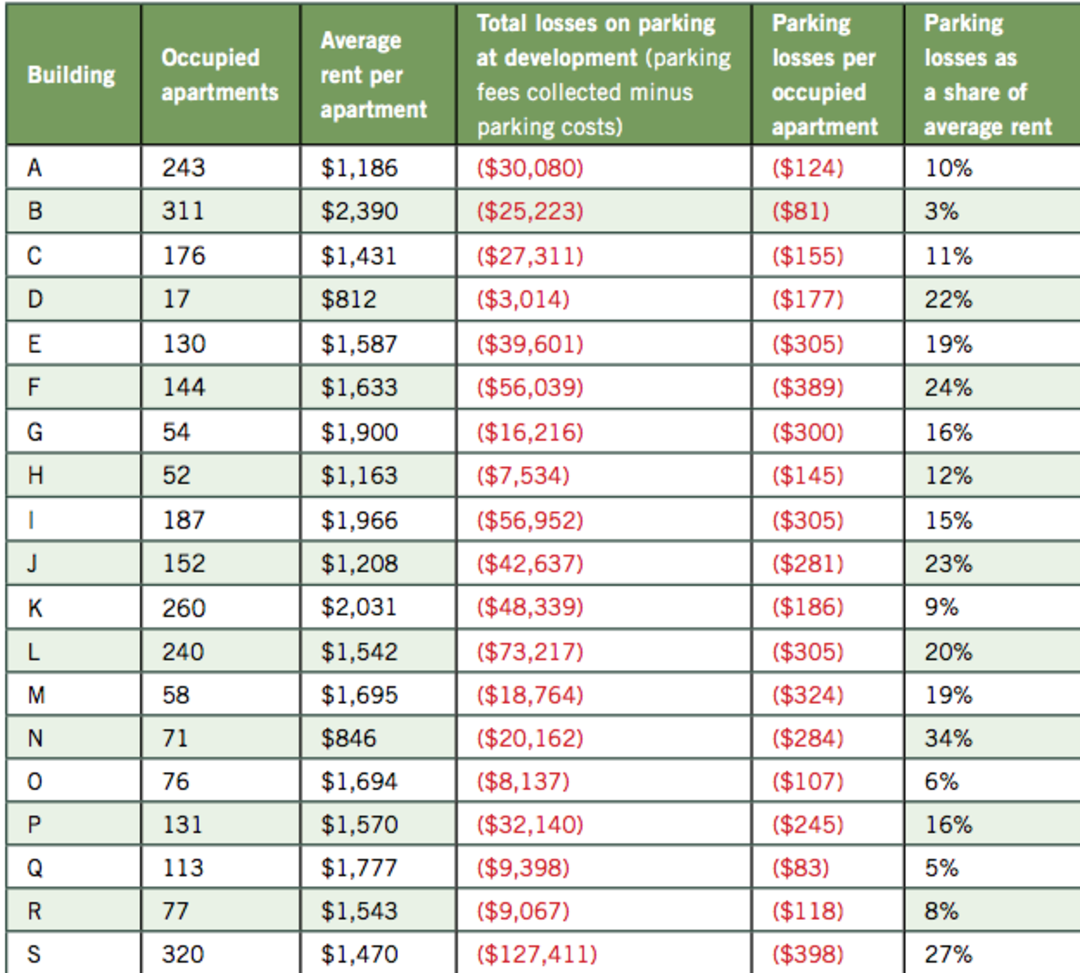The High Cost of Seattle's "Free" Parking

The C Is for Crank
The environmentalist/urbanist/pro-transit Sightline Institute has a new report which shows that the common practice of providing "free" or "cheap" parking in new residential developments actually makes rental housing significantly more expensive—especially, Sightline concludes, "for tenants with modest incomes who don't own cars."
Moreover, Sightline found that in its survey of 23 recently built apartment buildings, 37 percent of spaces were empty at night, the time of day when you'd expect parking to be in highest demand. In four developments, there were more than twice as many parking spaces as parked cars (meaning more than half the spaces were empty). On average, the buildings in the survey had 20 percent more apartments than cars, meaning that if car-owning renters averaged one car per apartment (a conservative estimate if you take seriously parking advocates' claim that many small-apartment dwellers have multiple cars), only 80 percent of renters owned cars.
And here's the problem with all that extra, unused parking: Everybody, including people who don't own a car, pays for it. "Free" parking adds about 15 percent to the cost of renting an apartment—in Seattle, about $246 a month.

Image via Sightline.
(As someone who doesn't own a car, this infuriates me. I was well aware that I involuntarily rent a parking space at my own apartment building—"included" in the rent, whether I want it or not—but I was stunned to see how much it's actually costing me to pay for something I don't use. And for the record, yet again—yes, I use transit, which, in addition to fares, is funded primarily by sales tax, which I pay just like everybody else. And transit is a public good in that it keeps cars off the road. You can't say the same for apartment parking.)
Back to the study: Would developers provide all this "free," unused parking if they didn't have to? (Parking requirements in many parts of Seattle mandate one or more parking spaces per unit). Unlikely, if you believe that supply follows demand.
In any case, Sightline concludes, "Regardless of the reasons for the parking glut, the fact that developers provide abundant (and often unneeded) on-site parking significantly increases the supply-side costs of building new multifamily rental housing. Economic theory posits that higher supply-side costs reduce the amount of new housing that is built. A scarcity of new housing, in turn, boosts rents. In the end, then, the pervasive oversupply of parking increases housing prices, allowing landlords to recoup their losses on parking by charging higher rents."
TL;DR: Here's study co-author Clark Williams-Derry's shorter, sandwich-based summation:
Imagine, just for a moment, that you live in an apartment building that offers a special lunch deal. Every morning the landlords put out a tray of 100 sandwiches for their tenants. They’re darn good sandwiches—each one costs $10 to make. Yet the landlords offer a discount, so that hungry tenants can buy a sandwich for just $3. If you don’t want a sandwich, you don’t pay anything. But if you do want a sandwich, you get a bargain!
Neat, right?
Well, not if you remember one of the key rules of economics: there is no free lunch. There isn’t even a below-cost lunch. The building owners are going to have to pay for the sandwiches somehow. And since their only source of income (besides the sandwich fees) is rent, that means that they’ll do their best to make up the money they lose on sandwiches by charging higher rent.
That about sums it up.




